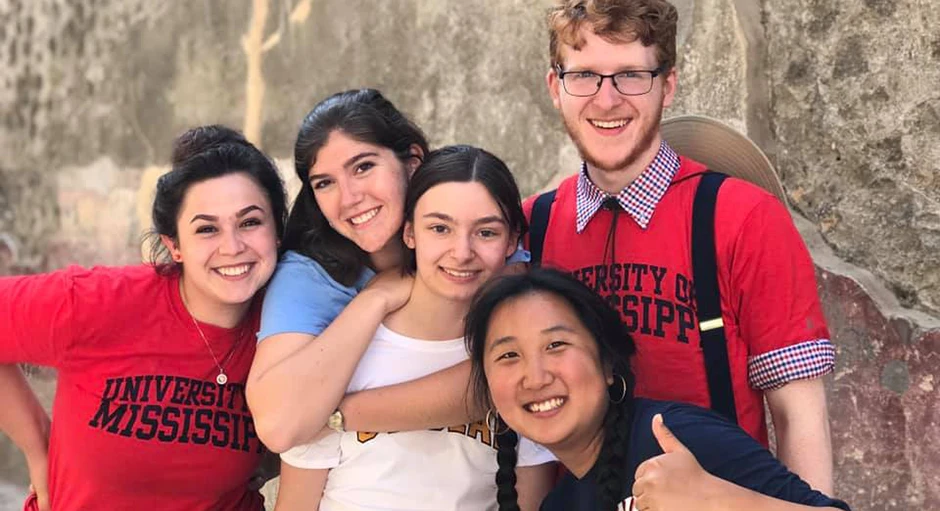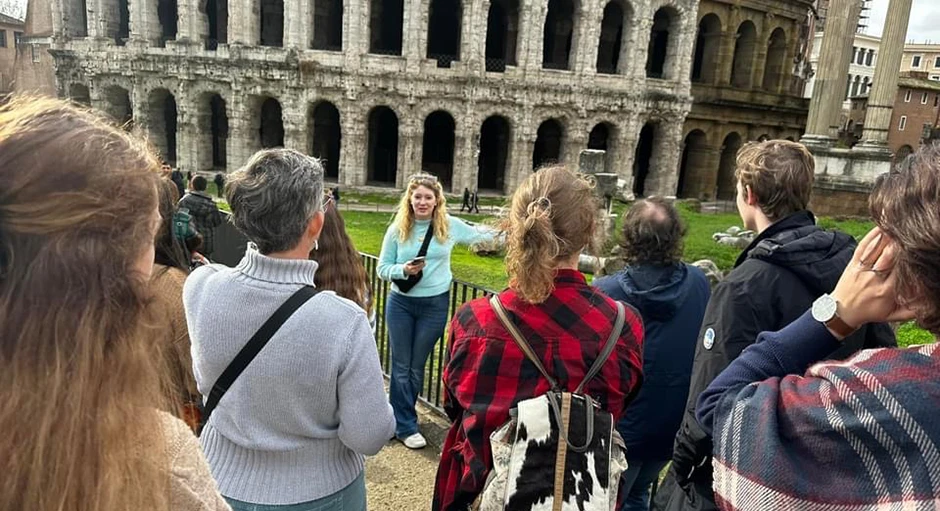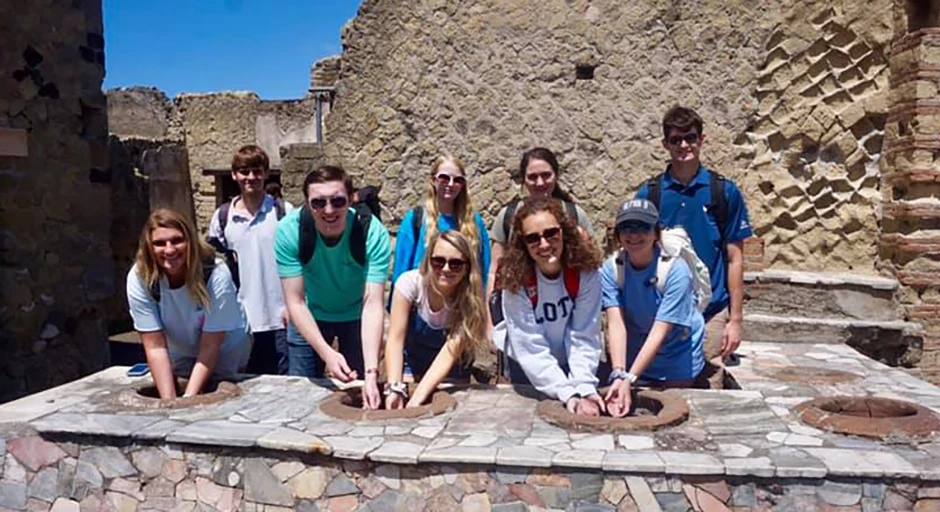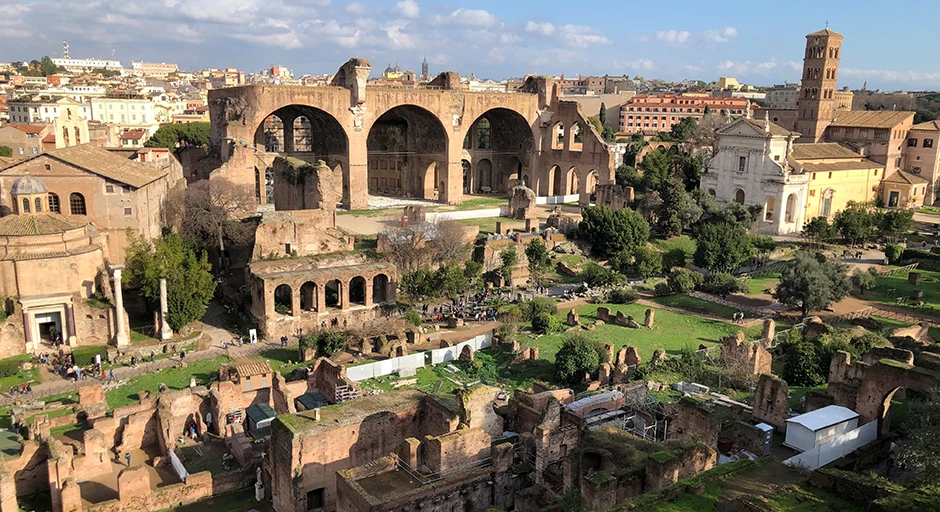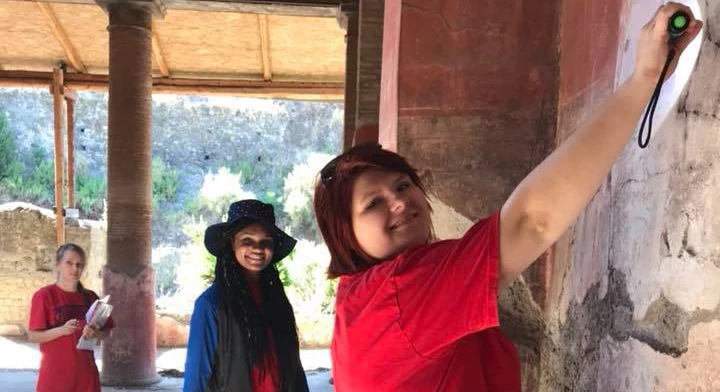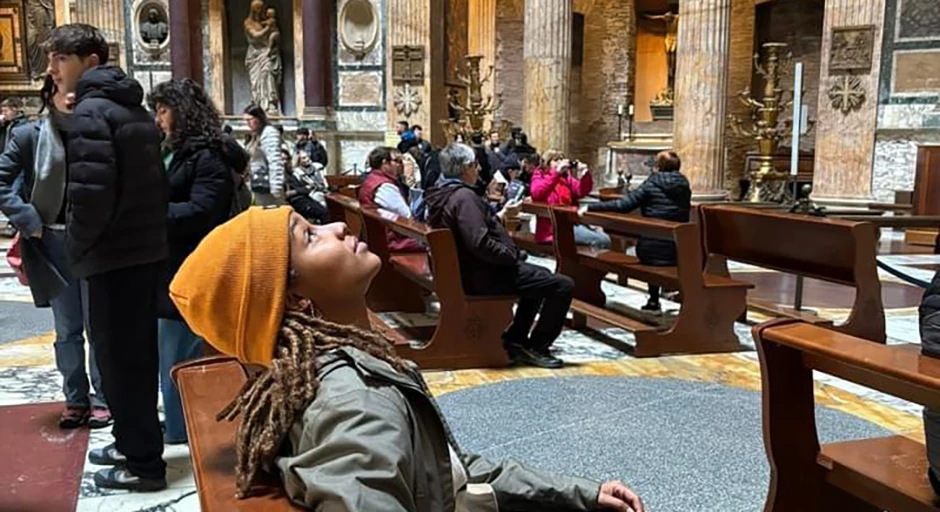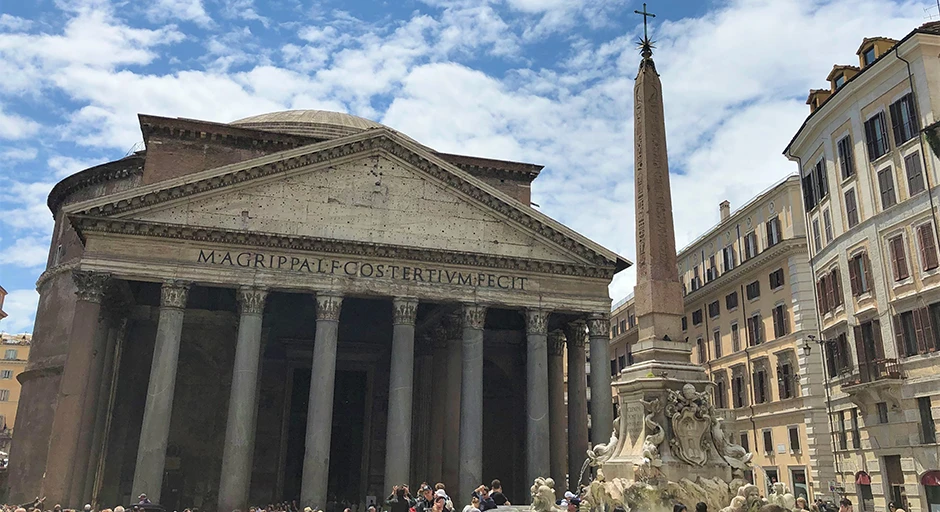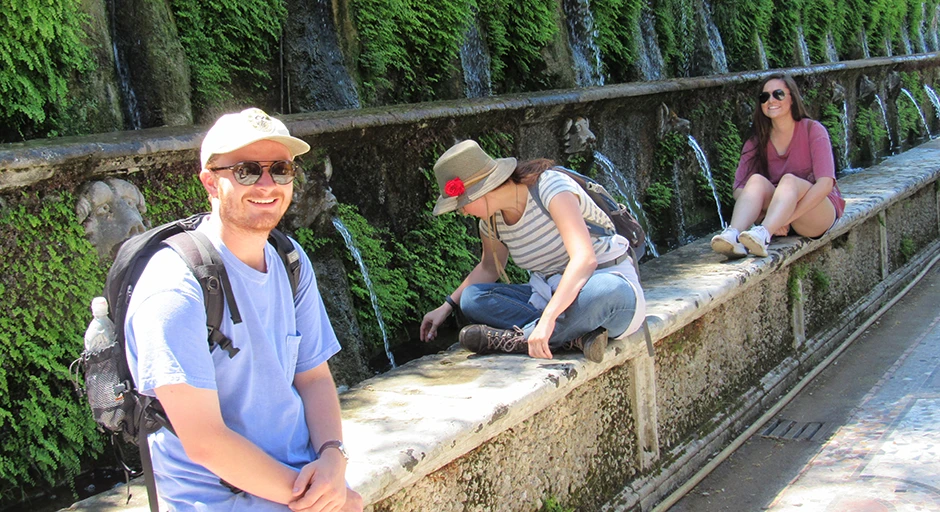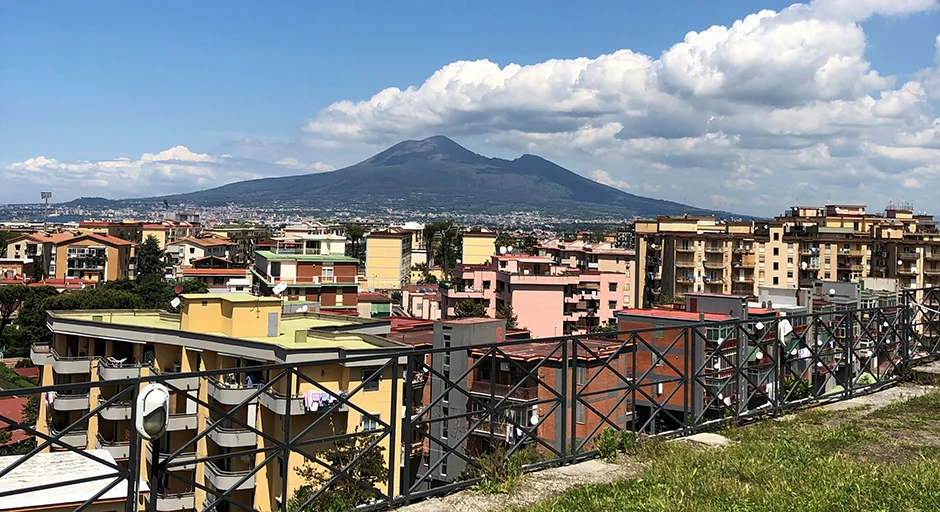Study Abroad with Classics
Studying Classics abroad offers invaluable firsthand experiences of ancient sites and artifacts, deepening understanding beyond textbooks.
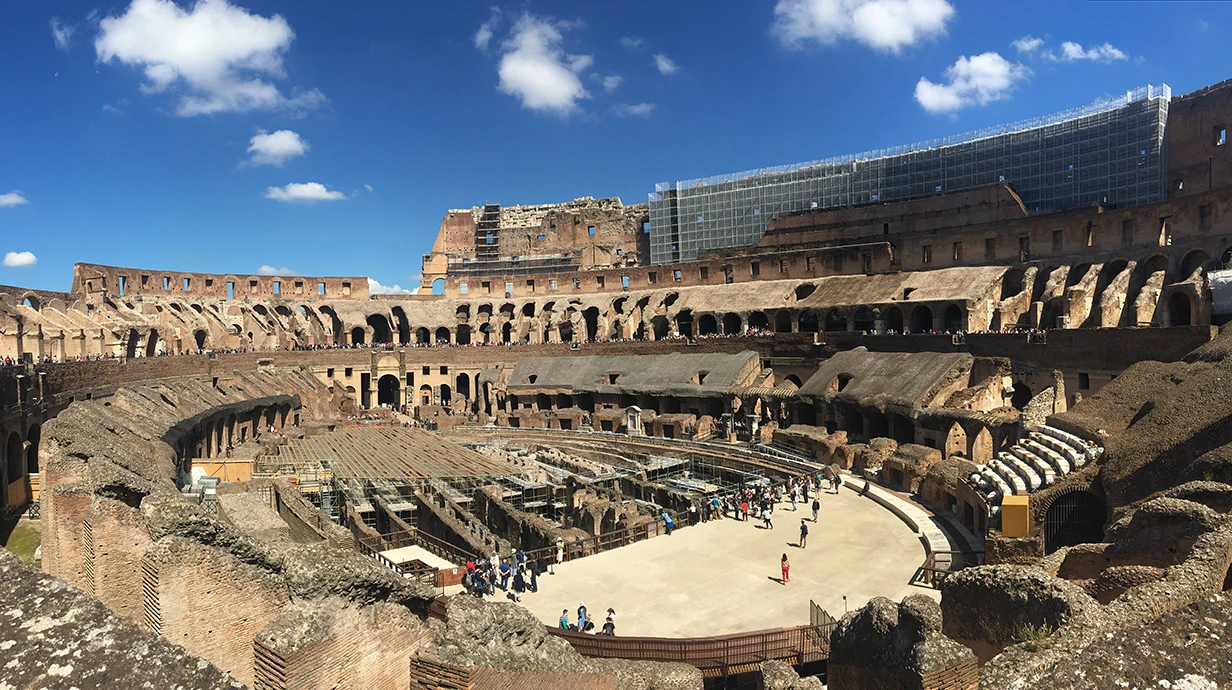
Program Information
A study abroad course led by one of our own faculty is perhaps the simplest way to study abroad. These courses are open to students of all majors, but Classics students are given priority.
Past and Upcoming Study Abroad Courses:
JANUARY INTERSESSION 2024 ClC 326
Eternal Cities: Study Tour of Rome and the Bay of Naples
Dr. Pasco-Pranger will lead this on-site course centered on the art and archaeology of Rome and its environs with a 3 day trip south to see Pompeii, Herculaneum, and Naples. The program cost for 2024 of $2700 includes tuition, study abroad fees, international health insurance, transportation during the program, several meals, and all entrance fees to sites; additional costs: plane fare, transportation to and from the airport, remaining meals, souvenirs, etc. NEXT PLANNED FOR JANUARY 2026. For more information, contact Dr. Pasco-Pranger.
These are UM affiliated programs that are good options for semester study in Classics:
- College Year in Athens offers full semester study in Athens with a full slate of Classics offerings, but also courses focusing on the other aspects of modern Greek culture. CYA also offers summer and January courses.
- The Centro (Intercollegiate Center for Classical Studies in Rome) is an excellent Classics-centered semester program based in Rome, with fewer than 36 students each term. The program centers on a 6-credit history and archaeology course called “The Ancient City”, with each student choosing two more courses from a small set of options.
- SAI at John Cabot University, Rome is a more traditional university structure, where you can choose from a wide variety of courses; this is an American university, with all courses taught in English.
It is also possible to study for a semester abroad through one of the university’s exchange programs in places aside from Athens and Rome and still take some Classics courses.
- American School for Classical Studies at Athens: The ASCSA Summer Session offers an intensive introduction to Greece from antiquity through the modern period; Summer Seminars are more topically themed travel study.
- Greek Studies on Site programs center on reading literature, philosophy, and history in connection with the Greek spaces it emerged from.
- Paideia Institute offers spoken language courses, combined with city exploration in Living Latin in Rome and Living Greek in Greece. A shorter January course focuses on Medieval Latin in Paris.
- The Athens Centre offers some unusual small scale programs in the summer, including modern Greek instruction.
- The American University of Rome offers a variety of summer courses including some in Classics.
- Greek and Latin Summer School, University College Cork, intensive (and surprisingly affordable) language study in Ireland.
- Archaeological Fieldwork Opportunities Bulletin is the AIA’s listing of field schools and digs.

My Study Abroad Experience
Studying abroad throughout my academic career at Ole Miss has been an amazing way to enhance my knowledge of my field of study and the world. As a Classics major, the opportunity to study in Italy deeply enriched my understanding and passion for the field, as I was able to study the material culture of classical antiquity so closely.
Sydney Lynch
Classics and Art History double major with minors in Museum Studies, and Intelligence & Security Studies
Financial Aid and Scholarships
Some financial aid you’ve already qualified for may be transferrable to your program, and more so for faculty led or affiliated programs. Whether you usually do or not, fill out a FAFSA in January of the year you plan to study abroad. Since the costs of studying abroad are almost always higher than staying home, you may qualify for some aid even if you usually don’t. Consult with the Office of Financial Aid on this issue.
The Office of Study Abroad also keeps a list of study abroad scholarships that are available.
If you are a Pell Grant recipient, note especially the Gilman International Scholarship Program.
Many of the programs listed also have program specific scholarships or financial aid, some of which can be quite substantial.
Through a generous gift of alumni Mike and Mary McDonnell of Memphis, the Department of Classics is able to give substantial support to Classics majors for study travel through the McDonnell Endowment.
A second gift from the family of a 2023 Classics graduate has created the Dr. Carmen Posada-Pepper and St. Amant Family Classics Endowment, which supports unexpected or ancillary costs for students studying abroad, with priority given to students with demonstrated financial need.
Requests for support from both these endowments are accepted throughout the year and will be considered on a rolling basis.
To apply, please send to Dr. Pasco-Pranger a letter (e-mail attachment is fine) describing the planned program and how it fits into your educational and/or career plans, and a budget showing your costs and any resources you already have to cover them.
- For Eta Sigma Phi members, a set of scholarships for summer study and archaeological field school projects is available. Deadline for all is February 15.
- The Society for Classical Studies offers the Frank M. Snowden Jr. Undergraduate Scholarships for undergraduate students from historically underrepresented groups across North America to further their study of classics or classical archaeology with opportunities not available during the school year. Eligible proposals might include (but are not limited to) participation in classical summer programs or field schools in the Mediterranean or language training at institutions in the U.S., Canada, or Europe. The maximum amount of the award is $4,500 and the receipt deadline is January 20.
- The Etruscan Foundation supports fieldwork in Italy. Applicants must be members of the Etruscan Foundation and applications are due in February 22.
- The Jane C. Waldbaum Archaeological Field School Scholarship is offered annually by the Archaeological Institute of America. The scholarship is open to students who have begun their junior year of undergraduate studies at the time of application and have not yet completed their first year of graduate school at a college or university in the United States or Canada. Deadline is March 1.
- The CAMWS Excavation/Field School Award is open to members of the Classical Association of the Middle West and South who are undergraduates majoring in Classics; preference given to applicants without prior fieldwork experience and three $2000 awards will be given. Deadline is January 30.

